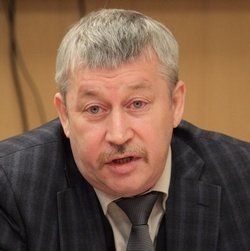''Russian oligarchs bank a trillion of dollars abroad. I do believe this number''
Russian millionaires and billionaires hold two-thirds of their fortune in foreign banks, not Russian
Russians with financial assets over $1m bank two-thirds of their fortune abroad, not in Russian banks. Frank RG came to such a conclusion in its research by dispelling the myth of Russian authorities about repatriation of capital. Most economists agree with the research authors' conclusions, while some of them suppose that money outflow volumes outside Russia are even higher. Realnoe Vremya tells the details.
Rich Russians bank two-thirds of their assets abroad
Frank RG studied financial assets of Russians with over $1-million fortune and more. It turned out that the rich of our country bank two-thirds of their fortune abroad, not in Russian banks, which contradicts official data.
The total volume of Russian oligarchs' assets was evaluated at $455bn, $140bn of which are in Russian banks, that's to say, only a third. The other two-thirds of this sum or most fortune ($315bn) are abroad.
Specialists of the company worked from June to October 2018 and analysed results of operation of 11 banks running their business in Russia. Frank RG annually does analogous research with the biggest market players. During the research, they hold interviews with bankers and independent experts, ask private banking clients questions.
According to the company's data, 27,000 people with a fortune of more than $1m have banked in Russian banks this year.
''But not all wealthy Russians bank their money. Frank RG estimates the total number of potential private banking clients as at least 30,000 people. Frank RG considers potential private banking clients are Russians who have a million of dollars in financial assets (in cash, deposits and securities excluding realty and business),'' the researchers noted.
According to the company, 50,2% of private banking clients are serviced only one private bank. At the same time, they can use services of several usual banks. 19,2% use services of one bank for all tasks.
''In the first half of 2018, wealthy clients' capital was 7,72tr rubles. About 60% of the portfolio of wealthy clients is foreign currency deposits.
In 2018, the overall fortune will grow by 22,3% to 8,67tr rubles. Foreign currency revaluation in this growth will total 7,2% (according to the forecasted ruble rate of the Ministry of Economic Development). In 2019, the total fortune will grow to 10,06bn rubles or by 16% (including negative 0,1% foreign currency revaluation)
Real growth in 2018 will be 15,1%, of which just 5% were secured by repatriation of capital.
In the first half of 2018, the investment portfolio totalled 1,6 trillion rubles and increased by 23,1% by late 2017,'' Frank RG says.
Not $315bn but up to $1tr of Russian money
Financier, Director of the economic programme of Carnegie Moscow Center Andrey Movchan thinks the calculation of Frank RG questionable concerning the volumes of financial assets of wealthy Russians abroad. By his estimate, these indicators are much higher:
''Frank RG's calculation is questionable because it includes not only deposits in Russian banks but also securities inside Russia, which means business in itself. The calculation isn't very accurate, they talk about some $300bn that Russians bank abroad. But, according to different estimates, this number varies to $1tr. And I do believe the trillion, which means we speak about not a one-third of the capital in Russia but one-ninth. This, in my opinion, looks like the truth more Indeed, the further we go, the less money is banked in Russia,'' Andrey Movchan noted.
According to him, the situation dramatically changed in the early 2000s. Even if Russians banked abroad at that moment, capitals were repatriated to Russia like investments: ''Now all investments, on the contrary, are escaping from Russia.'' Moreover, the newspaper's interlocutor is convinced this situation will get worse as time goes by:
 ''Risks inside Russia are the point. Rich Russians consider our country as a zone with extremely high risks it's dangerous to have a capital in. And there is a lot of confirmation of this. And actions of military officials and expropriation, fear of sanctions and collapse of the private banking system mean this. People look at this and say: ''We don't want to have money on this territory because it's toxic.''
''Risks inside Russia are the point. Rich Russians consider our country as a zone with extremely high risks it's dangerous to have a capital in. And there is a lot of confirmation of this. And actions of military officials and expropriation, fear of sanctions and collapse of the private banking system mean this. People look at this and say: ''We don't want to have money on this territory because it's toxic.''
Movchan noted that the same problems were raised during the Summit of Russian Financial Directors: ''All financial directors of Russian companies noted, firstly, their all demands had fallen in 2018, which means that people were purchasing less; secondly, they have a very high import prime cost rate, and the weak ruble put great pressure on them. It affects all but resource-based companies dealing with gas, oil, coal and metal.''
''This is why the situation is very depressive. Even Russian companies themselves are actively investing abroad now. Many of them who traditionally considered themselves local defenders of the Russian market went abroad because our market became uninteresting for them. And they try to get as much as possible outside the country because their sales are falling in Russia.''
''Many people's fortunes were earned dishonestly, for instance, the first vice prosecutor of Bashkortostan''
Ufa expert, Candidate of Economic Sciences, Associate Professor of the Department of Economics and Management at Ufa State Petroleum Technological University, Director of R-Invest Rustam Shayakhmetov doesn't see positive changes in the Russian repatriation of capital:
''I completely agree that wealthy Russians bank most of their financial assets abroad. The financial system of the West is stable than in Russia. Firstly, in Russia, no more than a certain sum can be secured, the rest is lost. In addition, our banks go bankrupt more often than in more developed countries. Secondly, our elite isn't national, it's more international – there has been globalisation. Many people bank money where their family lives. Look, where do relatives of wealthy Russians live? More people go outside the country. Thirdly, these citizens get ready to go abroad when they have problems with power because many people's fortunes were earned dishonestly. For instance, the first vice prosecutor of Bashkortostan. As soon as there was something fishy, he tried to escape from Russia. But he probably prepared a place, he wasn't going to live there without money, right?''
 According to Shayakhmetov, considering that the West ''began to bother wealthy Russians, it can arrest their assets, this can become a stimulus for some rich Russians to get their money back. However, the general trend – capital outflow from Russia – will go on until oligarchs' families start coming home and the situation in the economy and in society becomes more stable.
According to Shayakhmetov, considering that the West ''began to bother wealthy Russians, it can arrest their assets, this can become a stimulus for some rich Russians to get their money back. However, the general trend – capital outflow from Russia – will go on until oligarchs' families start coming home and the situation in the economy and in society becomes more stable.
Director of Department of External Economic Studies in the Institute for US and Canadian Studies of the Russian Academy of Sciences, Doctor of Economic Sciences Mikhail Portnoy also agrees with this point of view:
''If the country has insufficient favourable conditions to run a business, capital escapes. This happened in many other countries, and this has been happening in Russia for the last 20 years. This is why I see nothing surprising that wealthy Russians bank two-thirds of the capital abroad. This is quite possible.''
What's more, despite Russian authorities' attempts to get capital back, it's unlikely to happen now, the newspaper's interlocutor supposes: ''What a forecast can be made if this has been sustainably happening for 20 years? Capital won't be back until the economy starts growing obviously and notably, what can favour businesses,'' Portnoy strongly believes.